Literature
-
 Toward a Medieval Poetics
Paul Zumthor
1991 Fall
Toward a Medieval Poetics
Paul Zumthor
1991 Fall
- A major work of modern critical theory that is concerned with establishing the dynamics of textual production in the Middle Ages. Integrating knowledge in philosophy, history, sociology, and language, Zumthor produces a detailed synthesis that depicts the literary understanding during the historical period that laid the basis for modern literature.
-
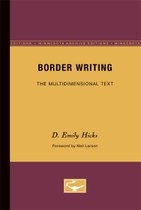 Border Writing
The Multidimensional Text
D. Emily Hicks
1991 Fall
Border Writing
The Multidimensional Text
D. Emily Hicks
1991 Fall
- A paradigmatic contribution to literary theory and interpretation out of the writings of Latin America.
-
 The Politics of Editing
Nicholas Spadaccini and Jenaro Talens, Editors
1992 Spring
The Politics of Editing
Nicholas Spadaccini and Jenaro Talens, Editors
1992 Spring
- “This state-of-the-art commentary is always mindful of a rich and engaging editorial tradition and conscious, at the same time, of how recent theoretical models may affect, and direct, the editor’s task. . . . a most insightful, informative, and provocative study.” --Edward H. Friedman
-
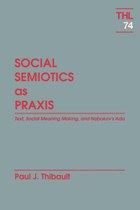 Social Semiotics as Praxis
Text, Social Meaning Making, and Nabokov’s Ada
Paul J. Thibault
1990 Fall
Social Semiotics as Praxis
Text, Social Meaning Making, and Nabokov’s Ada
Paul J. Thibault
1990 Fall
- Focusing on Nabokov's Ada, the author rescues semiotics from terminal formalism by developing a conception of social semiotics that is a form of both social action and political praxis.
-
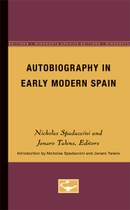 Autobiography in Early Modern Spain
Nicholas Spadaccini and Jenaro Talens, Editors
1991 Spring
Autobiography in Early Modern Spain
Nicholas Spadaccini and Jenaro Talens, Editors
1991 Spring
-
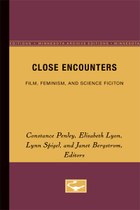 Close Encounters
Film, Feminism, and Science Ficiton
Constance Penley, Elisabeth Lyon, Lynn Spigel and Janet Bergstrom, Editors
1990 Fall
Close Encounters
Film, Feminism, and Science Ficiton
Constance Penley, Elisabeth Lyon, Lynn Spigel and Janet Bergstrom, Editors
1990 Fall
- Offers new critical approaches to science fiction as represented in film, television, fan culture, and other non-literary media. Addresses the way conventional notions of sexual difference are reworked by science fiction film. Includes the complete script of Peter Wollen’s 1987 film Friendship’s Death. Contributors: Raymond Bellour, Janet Bergstrom, Roger Dadoun, Harvey R. Greenberg, M.D., Henry Jenkins III, Enno Patalas, Constance Penley, Vivian Sobchak, Lynn Spigel, and Peter Wollen.
-
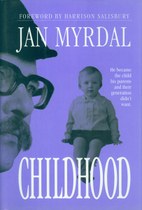 Childhood
Jan Myrdal
None None
Childhood
Jan Myrdal
None None
- He became the child his parents and their generation didn’t want.
-
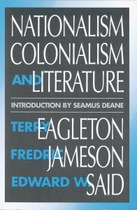 Nationalism, Colonialism, and Literature
Terry Eagleton, Fredric Jameson and Edward W. Said
1990 Fall
Nationalism, Colonialism, and Literature
Terry Eagleton, Fredric Jameson and Edward W. Said
1990 Fall
-
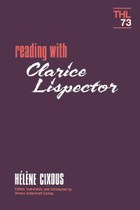 Reading with Clarice Lispector
Helene Cixous
Verena Andermatt Conley, Editor
1990 Spring
Reading with Clarice Lispector
Helene Cixous
Verena Andermatt Conley, Editor
1990 Spring
- The foremost French feminist literary critic pays homage to the premiere Latin American woman prose writer of this century.
-
 Writings on Literature
N. S. Trubetzkoy
Anatoly Liberman, Editor
1990 Spring
Writings on Literature
N. S. Trubetzkoy
Anatoly Liberman, Editor
1990 Spring
- An illuminating introduction to the literary writings of one of the most influential scholars in the history of linguistics.
-
 Oral Poetry
An Introduction
Paul Zumthor
1990 Spring
Oral Poetry
An Introduction
Paul Zumthor
1990 Spring
- A penetrating analytical study of the sources of orality and contemporary modes of poetic practice by a prominent literary theorist. Zumthor discusses the development of oral poetry from antiquity to the present.
-
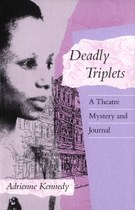 Deadly Triplets
A Theatre Mystery and Journal
Adrienne Kennedy
1990 Spring
Deadly Triplets
A Theatre Mystery and Journal
Adrienne Kennedy
1990 Spring
- A surrealistic intertwining of mystery and autobiography set in the theatre world of 1960s London.
-
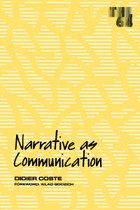 Narrative as Communication
Didier Coste
1989 Fall
Narrative as Communication
Didier Coste
1989 Fall
- The first major treatise on narrative and narrative theory to make use of all the analytic tools developed in the last two decades.
-
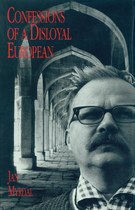 Confessions of a Disloyal European
Jan Myrdal
None None
Confessions of a Disloyal European
Jan Myrdal
None None
-
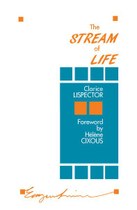 The Stream of Life
Clarice Lispector
1989 Spring
The Stream of Life
Clarice Lispector
1989 Spring
- This novel is considered the greatest work of fiction by the Brazilian writer the New York Times Book Review called “the premier Latin American woman prose writer of this century.” An intense and lyrical work, it chronicles its female protagonist’s journey of self-discovery and self-affirmation. “Whether as novelist or short story writer, Lispector always seemed to be involved with the ambiguities of living, the pleasures derived from it as well as its tragic aspects.” --San Francisco Review of Books